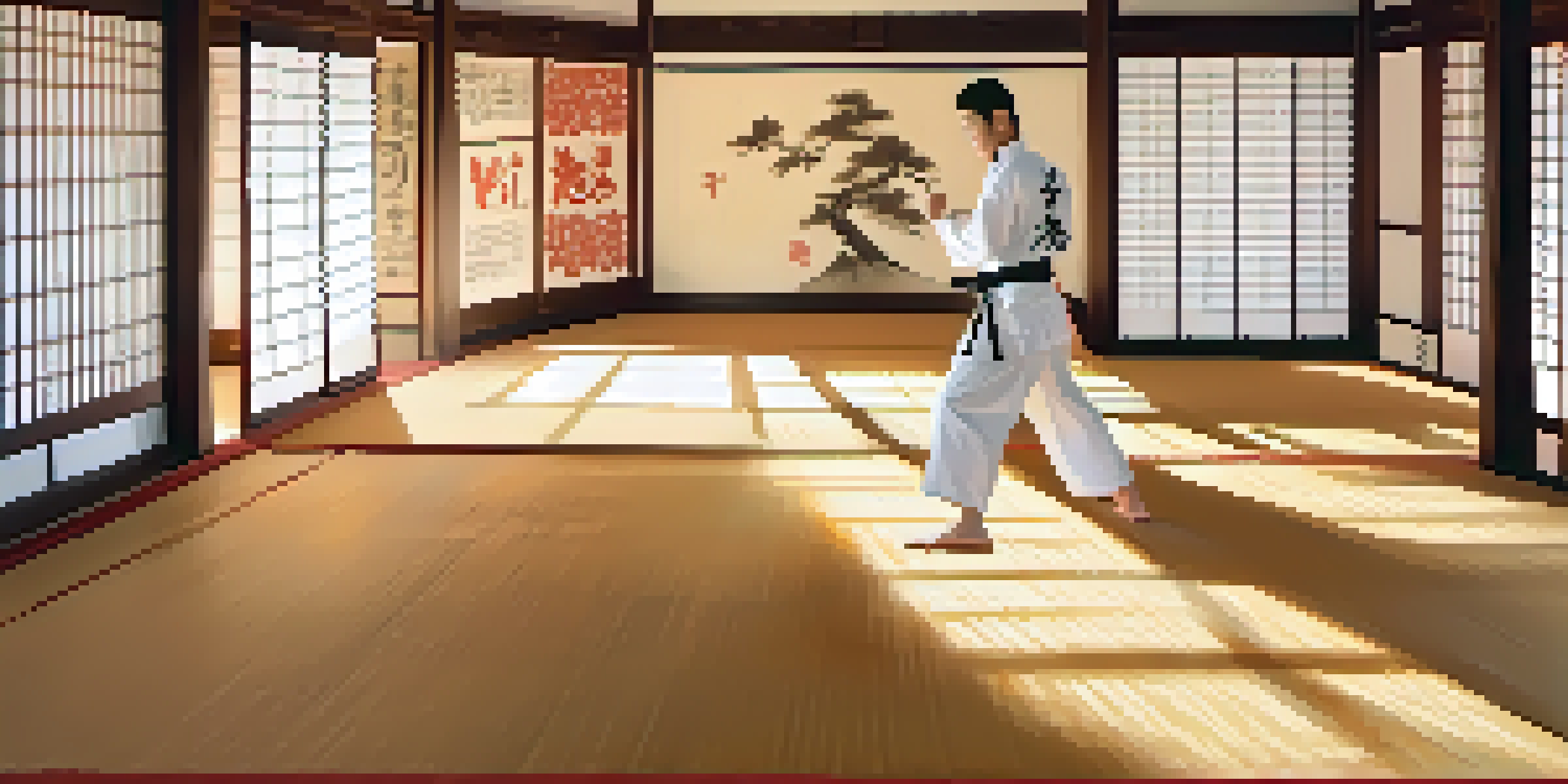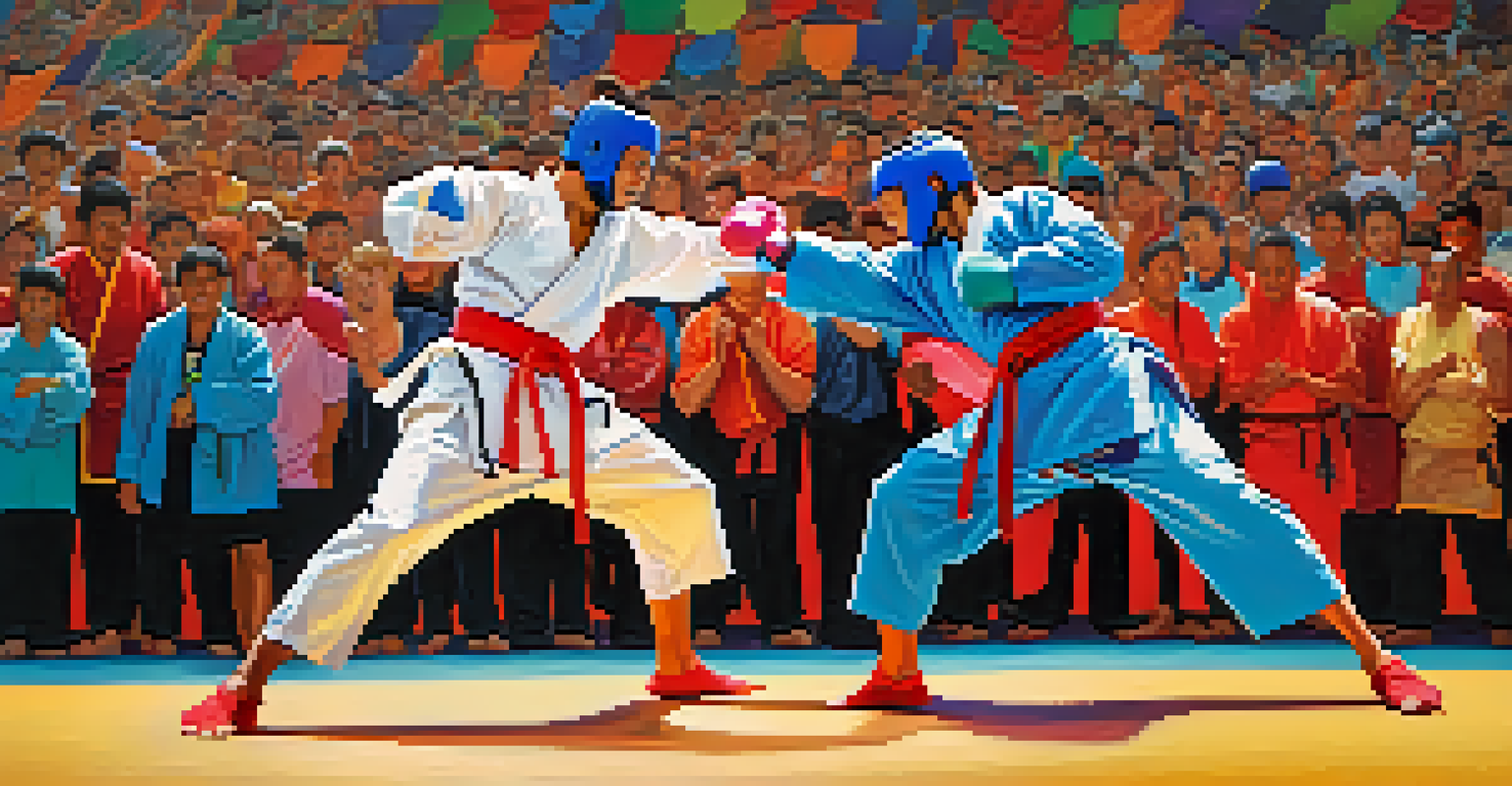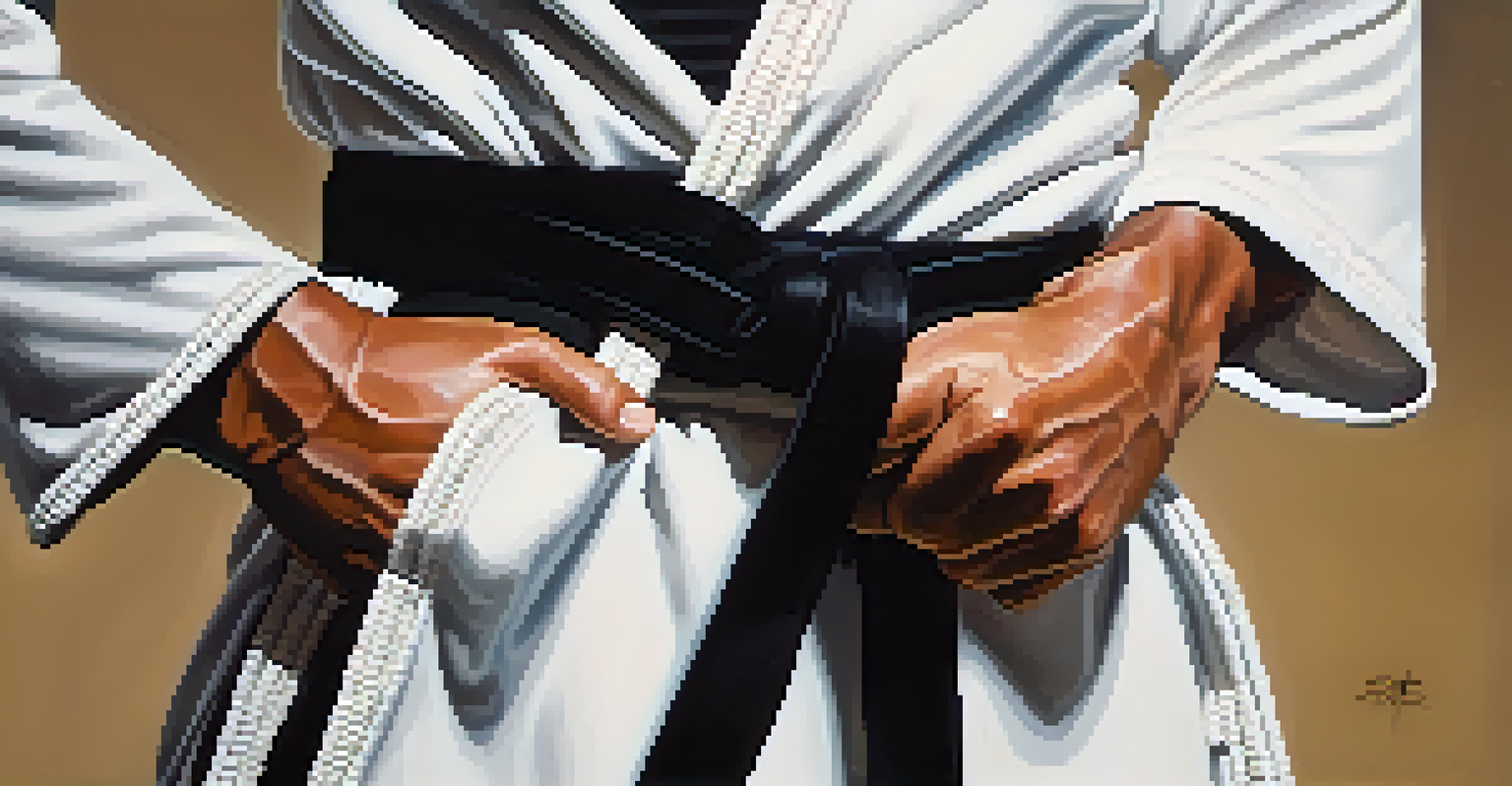Martial Arts Training: A Pathway to Emotional Strength

Understanding Emotional Strength in Martial Arts
Emotional strength is often overlooked in discussions about martial arts, yet it plays a vital role. It encompasses the ability to manage stress, stay focused, and recover from setbacks. In martial arts, practitioners learn to navigate their emotions, which can translate into everyday life challenges.
It is not the strongest of the species that survive, nor the most intelligent, but the one most responsive to change.
For example, when faced with a difficult sparring partner, a martial artist must control their fear and frustration. This teaches them to respond to pressure with composure, a skill that can be applied not just in the dojo but in work and personal relationships too.
Ultimately, understanding emotional strength within martial arts encourages practitioners to see themselves as resilient individuals capable of overcoming obstacles—both on and off the mat.
The Role of Discipline in Building Emotional Resilience
Discipline is a cornerstone of martial arts training, serving as a powerful tool for emotional resilience. By adhering to a consistent training schedule, martial artists develop a sense of responsibility and commitment to their growth. This structure helps them manage their emotions more effectively, especially during tough times.

Take, for instance, the routine practice of kata, or forms, which requires focus and precision. As students repeat these movements, they learn patience and perseverance, key traits that bolster emotional strength. This discipline fosters a mindset that embraces challenges rather than shying away from them.
Emotional Strength in Martial Arts
Practicing martial arts enhances emotional strength by teaching individuals to manage stress, stay focused, and recover from setbacks.
In essence, the discipline cultivated through martial arts not only enhances physical skills but also fortifies the mental and emotional aspects of a practitioner's character.
Breathing Techniques for Emotional Regulation
Martial arts often incorporate various breathing techniques that can help practitioners regulate their emotions. For instance, deep, controlled breathing can calm the mind and body, reducing anxiety and stress levels. This practice allows martial artists to maintain focus, especially during competition or high-pressure situations.
The greatest glory in living lies not in never falling, but in rising every time we fall.
An example is the technique known as 'abdominal breathing,' where individuals focus on breathing deeply into their diaphragm. This technique slows the heart rate and promotes a sense of calm, which is crucial for emotional stability when facing challenges both in and out of the dojo.
By mastering these breathing techniques, martial artists not only improve their performance but also equip themselves with valuable tools to manage their emotions effectively.
The Power of Community in Martial Arts
One of the most significant aspects of martial arts training is the sense of community it fosters. Practitioners often train together, building strong bonds that offer emotional support and encouragement. This camaraderie helps individuals feel less isolated in their struggles, enhancing emotional resilience.
For example, during group sparring sessions, students learn to support one another, whether by offering feedback or cheering each other on. These interactions create a supportive environment where individuals can share their experiences, fears, and triumphs, reinforcing the idea that they are not alone in their journeys.
Discipline Builds Resilience
The discipline gained through consistent training fosters patience and perseverance, which are essential for emotional resilience.
Ultimately, being part of a martial arts community provides a safe space for emotional growth, allowing practitioners to face challenges together and emerge stronger.
Facing Fear and Building Confidence Through Sparring
Sparring is often seen as a daunting aspect of martial arts training, but it plays a crucial role in developing emotional strength. The act of facing an opponent challenges practitioners to confront their fears head-on. This exposure can significantly boost confidence and resilience over time.
Consider the first time a student steps onto the mat to spar—nervousness is common. However, as they engage with their partner, they learn to navigate that fear, gaining valuable self-assurance with each session. The more they spar, the more they realize their capabilities, both physically and emotionally.
Through sparring, martial artists not only hone their technical skills but also cultivate a mindset that embraces challenges, ultimately leading to greater emotional strength.
Goal Setting: A Pathway to Emotional Growth
Goal setting is an integral part of martial arts training, providing direction and motivation. By establishing clear objectives, practitioners can track their progress and celebrate achievements, which fosters a sense of accomplishment. This achievement boosts self-esteem and emotional well-being.
For instance, a student might set a goal to achieve a new belt rank or master a specific technique. Each step toward that goal requires dedication and effort, instilling a sense of purpose. As they work toward these milestones, they build emotional resilience, learning to handle setbacks along the way.
Community Supports Emotional Growth
Training within a supportive martial arts community helps individuals feel less isolated, promoting emotional resilience and growth.
In this way, goal setting in martial arts becomes more than just a means to an end; it becomes a journey of emotional growth and self-discovery.
Coping with Adversity: Lessons from Martial Arts
Martial arts training offers valuable lessons in coping with adversity. Practitioners often face physical and mental challenges, teaching them how to persevere in the face of difficulties. This resilience is a critical aspect of emotional strength, enabling individuals to bounce back from setbacks.
For example, after losing a match, a martial artist learns to analyze their performance, identify areas for improvement, and approach future challenges with a positive mindset. This process instills a belief that failure is not the end but a stepping stone to success.

By learning to cope with adversity through martial arts, individuals become better equipped to handle life's ups and downs, fostering emotional resilience that lasts a lifetime.